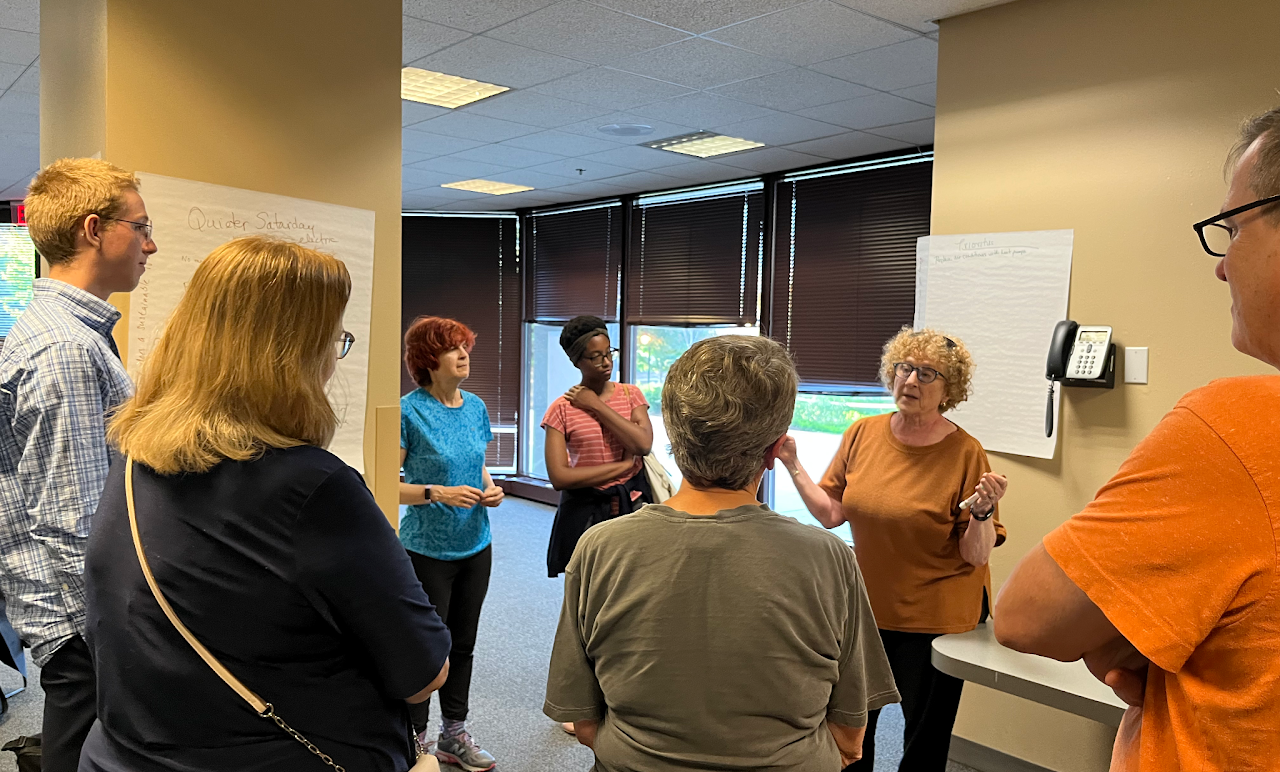Our July meeting focused on hearing the voices of residents and learning about their sustainability and climate action goals for Naperville.
We asked the 60 or so participants, “What will Naperville be like if we address climate change as a community versus the status quo?” Participants were asked to imagine a better future. In response they painted a picture of a future Naperville with clean air to breathe and quieter weekends, with fewer lawns to mow and no more gas powered lawn equipment. Trees and native plants will replace chemical- and water-intensive lawns, supporting and enhancing pollinators and biodiversity. They envisioned easier and cleaner ways to get around, with safe walking and biking routes and public transit to get folks wherever they want to go. Not just the buses, but all transportation will be electric, reducing fuel costs, noise, and air quality alert days. To support all of these electric vehicles, EV charging will be accessible to all. Solar and geothermal will be the standard way we power, heat, and cool our homes and other buildings. Our participants’ vision of a sustainable Naperville also included less waste, better recycling, no more single-use plastics, and more composting. All these things will become normal and easy, and be part of a Naperville that is an even better place to live, raise a family, work, and visit than it is now.
To create this future, we asked participants, “What do you think should be the priorities for making Naperville more sustainable?” Participants overwhelmingly supported the idea of Naperville city government taking a leadership role in educating the community and incentivizing sustainable practices for businesses, individuals, and organizations. A huge standout among recommendations was that reducing/eliminating our reliance on coal electricity would have an outsized impact on our carbon emissions. Participants also supported other specific priorities around energy, waste, transportation, buildings, and natural resources – all things that will help bring about the future they envisioned for Naperville.
In summary, Naperville residents want to end our reliance on fossil fuels – coal, gasoline, diesel, and natural gas – and support our natural environment to create a healthier, resilient community. They are looking to Naperville city government for leadership, public education, and incentives to advance all of their sustainability priorities and are interested in getting involved to make these things happen.
Naperville has made progress, but must move faster. Addressing the climate crisis is not just necessary, it’s also an opportunity for economic growth, innovation, and improvement to quality of life.

